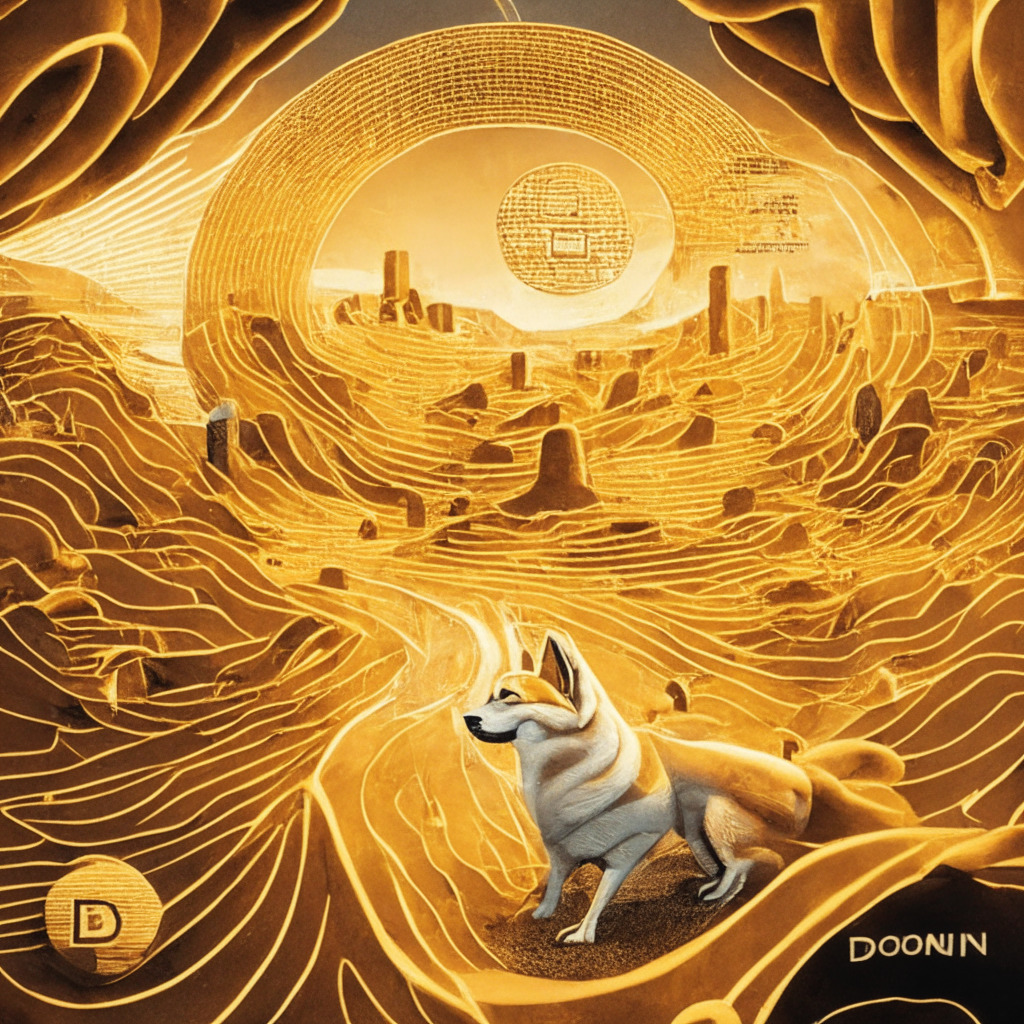The world of blockchain technology continues to evolve and expand at an unprecedented speed, and amongst the leading players in this sector is Solana. In a recent interview conducted by Decrypt’s Kate Irwin, Johnny Lee, the Solana Foundation’s Games General Manager, sheds light on Solana’s unique “build together” approach and shares his perspective on the likelihood of certain crypto firms transitioning into game publishers.
This “build together” approach is crucial for Solana’s vision, which focuses on collaboration and co-creation rather than competition. By actively engaging with the community, they seek to combine efforts and develop innovative solutions for the gaming space. However, some might argue that this cooperative strategy could lead to a slower development process, given the complexities of group dynamics and the need for consensus among stakeholders.
With the rapid growth of the gaming industry – especially online and blockchain-based games – it’s not surprising to see discussions about whether crypto firms such as Solana could venture into becoming game publishers. However, Lee remains skeptical about this possibility. According to him, the core strengths of blockchain projects often lie in areas such as decentralization, security, and transparency, which may not necessarily overlap with the skillsets and resources needed to excel in the highly competitive and rapidly changing gaming industry.
Critics might argue that it would be shortsighted for crypto firms to write off the idea of becoming game publishers altogether. Instead, they could explore the possibility of strategic partnerships with game developers and utilize their blockchain expertise to foster innovation within the games themselves. This could open new revenue streams while integrating cutting-edge blockchain technologies into the gaming experience.
On the flip side, the likelihood of crypto firms successfully pivoting into the role of game publishers could be limited. This is primarily due to the fact that the gaming industry is highly specialized, requiring expertise in various facets such as game design, development, and marketing. With the majority of crypto projects focused on enhancing and securing the digital economy, they may find it difficult to compete with established players in the gaming world.
In conclusion, it’s essential to fully grasp the scope and limitations of blockchain technology when considering its application in various industries – especially within the gaming sector. Solana’s “build together” approach offers a unique take on collaboration and co-creation that could potentially lead to groundbreaking advancements in the realm of gaming. At the same time, crypto firms might struggle to unlock their full potential as game publishers due to the inherent differences between the two industries.
Overall, while the future of blockchain and gaming remains uncertain, one thing is clear: the ongoing conversations and debates around crypto firms’ involvement in game publishing will help shape the trajectory of this interwoven landscape. The best approach for both parties might be to focus on leveraging their respective strengths while exploring partnerships that lead to mutually beneficial partnerships, ultimately pushing the boundaries of blockchain and gaming alike.
Source: Decrypt




